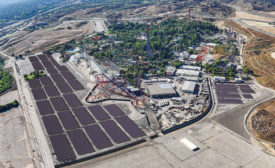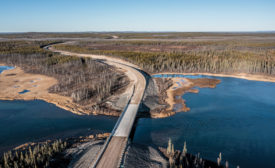Home » infrastructure
Articles Tagged with ''infrastructure''
ENR 2023 Top 25 Newsmakers
Benjamin Heath: Led Team to Quickly Install Bypass After Vermont Sewer Pipe Failure
Read MoreGeneral Building
2023 Global Sourcebook: Athens Tower to Rise 650 ft
$360-million residential building to include 169 apartments
Read More
ENR 2023 Global Best Projects
Best Road/Highway and Project of the Year Finalist - Tłı̨chǫ All Season Road
Read MoreEVs Bring Big Shifts to Construction of Manufacturing, Infrastructure and Charging Networks
To meet 2035 goals, designers are testing charging technology, while automakers are becoming their own contractors
Read More
The latest news and information
#1 Source for Construction News, Data, Rankings, Analysis, and Commentary
JOIN ENR UNLIMITEDCopyright ©2024. All Rights Reserved BNP Media.
Design, CMS, Hosting & Web Development :: ePublishing















